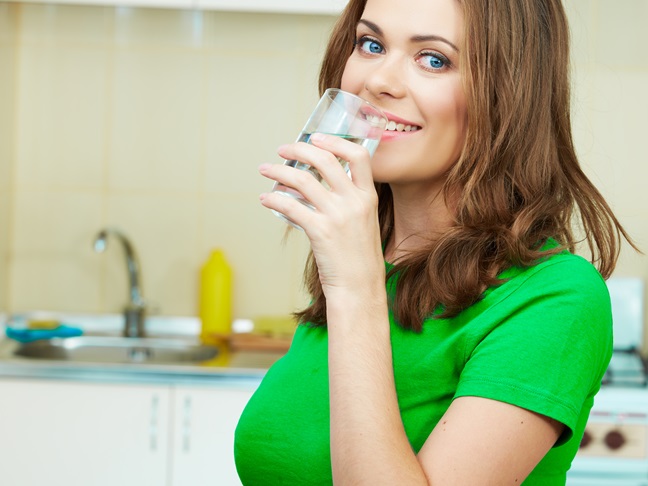How do you know when or how much to drink?
Our thirst mechanisms are often off and by the time we’re feeling thirsty, our bodies are already in a state of dehydration. Sometimes, we think we’re hungry when in fact we’re thirsty so we can’t rely on our thirst to let us know it’s time to drink.
Signs of dehydration include tiredness, fatigue, dizziness, weakness, irritability, hot flashes, dry mouth, tongue, lips, darker colored urine and decrease of urine output. Babies, young children and the elderly are most susceptible to becoming dehydrated, so it’s crucial to keep hydration top of mind for these groups. For the rest of us, strategies to help us drink more can help. We can set a timer on our computer to go off reminding us to drink, have a water bottle (glass or BPA Free is best) with us throughout the day, check off glasses of water using a simple tracking system, make sure we bring a bottle of water with us when we leave the house or come up with a simple method that helps get you in the habit of drinking more throughout the day.
Now, if you often find yourself grabbing sweetened flavored water, artificially sweetened drinks, soda or juice instead of water, here’s something to consider. These alternatives can be loaded with neurotoxins (artificial sweeteners) added sugars, food dyes and add hundreds of calories to your daily intake. Also, it’s so much more satisfying to chew your calories vs. drinking them. When we drink our calories, we don’t often feel the sense of satiety (satisfaction) that comes from chewing a meal, which can lead to binge eating. Drinking our calories and drinking highly sweetened drinks can also lead to spikes of insulin and blood glucose levels, laying the groundwork for insulin resistance, diabetes, inflammation and obesity.
So how can you boost your water intake without harming your health?
Here are some natural and healthy flavor boosters:
Add frozen berries (strawberries, blueberries, raspberries, blackberries) to a large jug or gallon of filtered water. Let the mix sit in the fridge, allowing the berries to defrost to a chilled temperature, giving off juices and adding powerful antioxidants in the process.
Make your own tea mixtures. Different teas provide different nutrients and they’re all great for your health. For example, black tea improves heart health, provides polyphenols for cancer prevention, can improve digestive health, immune function and more. Green tea can help boost your metabolism, regulate blood glucose levels, decrease oxidative stress (which causes accelerated aging), provide strong antibacterial agents to prevent illness to name a few. Herbal teas provide a calming effect and come in a variety of flavors depending on your personal tastes. Here are a few ways to make a healthy iced tea mixture:
Boil water and let it sit with a favored black tea, green tea, flavored or herbal tea of your choice. If you want it slightly sweetened, add liquid stevia and mix well. Cool to room temperature then store in the fridge.
What if you don’t have time and want something quick and easy? Here are my two favorites:
• Add a squirt of lemon juice (100% real lemon juice) and a squirt of liquid stevia to filtered water in a BPA free water bottle. Healthy lemonade, which is a great detoxifier as well!
• Add a squirt of liquid green tea and a squirt of liquid stevia to your filtered water for delicious iced tea!
It’s all about creating healthy habits and regularly drinking water is a powerful habit that’s important for you as well as your family. Wishing you healthy hydration!








